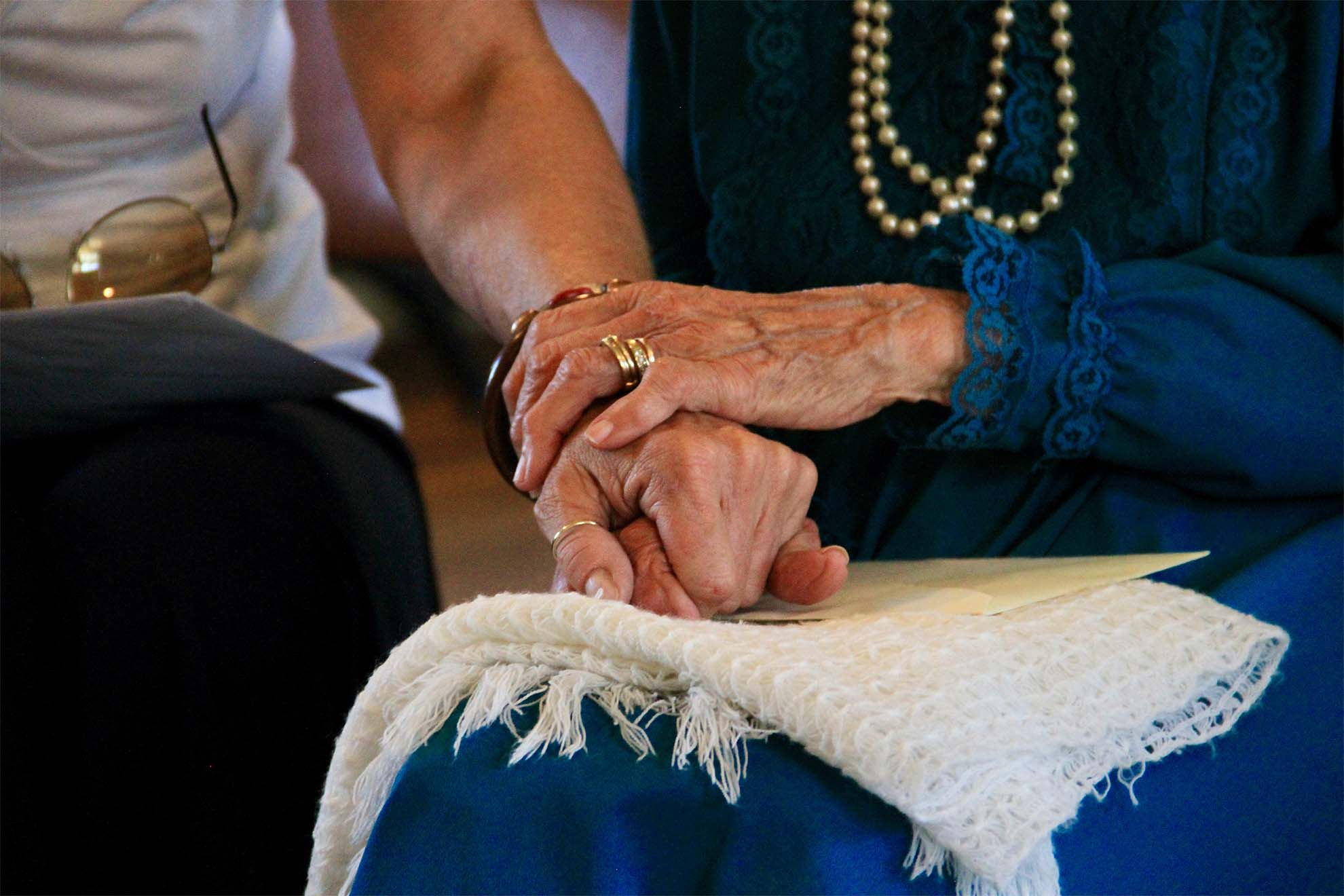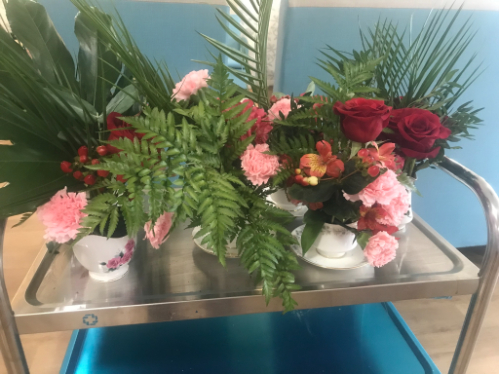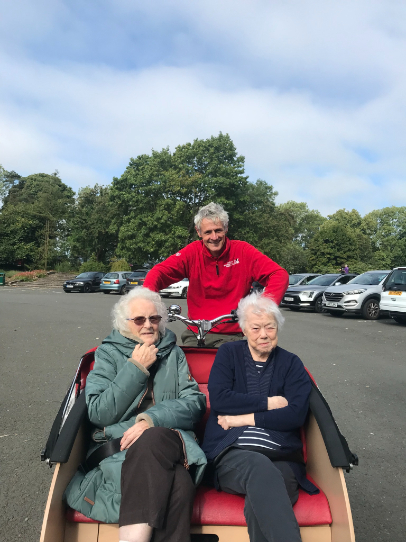Why are Group Activities Good for Residents in a Care Home?
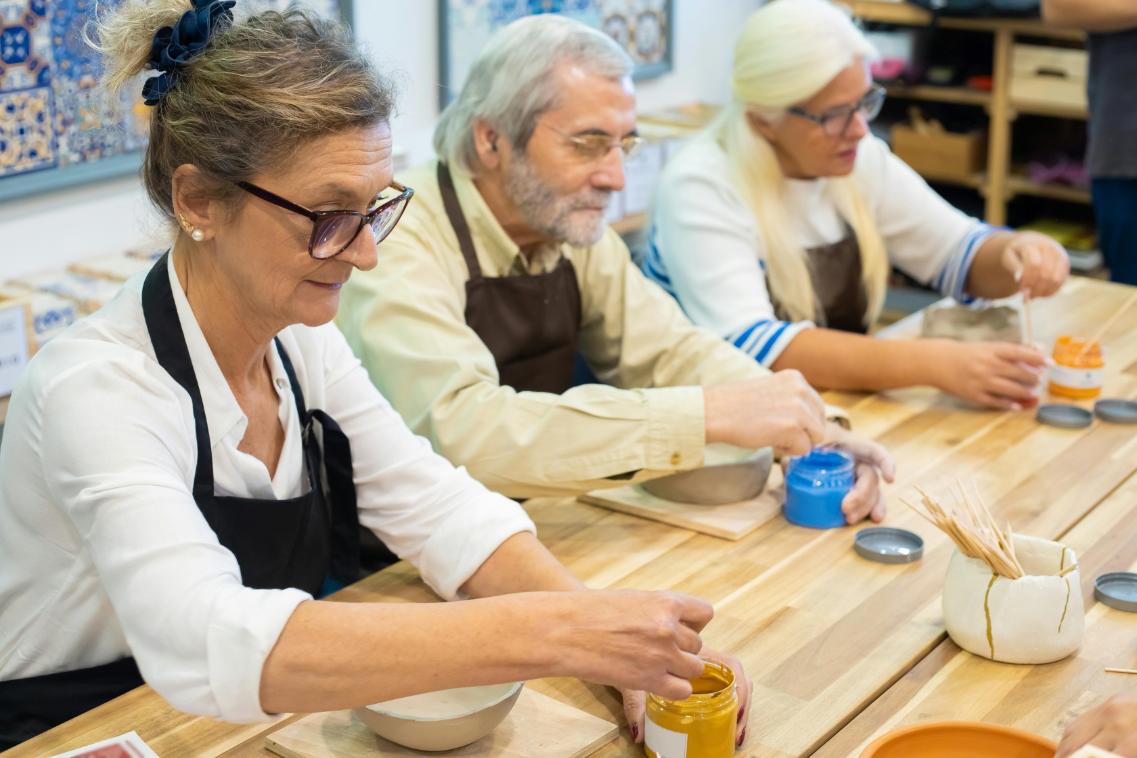
Group activities in care homes offer much more than just a way to pass the time - they have a profound impact on residents mental, emotional, and physical wellbeing. At Benarty View Care Home, we understand the value of creating a supportive, inclusive environment where our residents can thrive through social interaction, mental stimulation, and meaningful activity. But why are group activities good for residents in a care home? Let's explore the wide-ranging benefits that make these activities essential to improving residents' quality of life.
Enhancing Mental and Emotional Wellbeing
One of the most significant advantages of group activities is the positive impact they have on mental health. Many older adults experience feelings of loneliness or isolation, especially after transitioning into care. Group activities provide a structured way to encourage residents to connect with fellow residents, build meaningful connections, and share personal stories. These social interactions combat feelings of loneliness and promote emotional support in a safe, nurturing environment.
Meaningful relationships and stimulating conversations also lead to better mental health outcomes. Activities such as arts and crafts, board games, and art classes offer opportunities for creative expression, which in turn promotes emotional wellbeing and a sense of accomplishment. Residents often feel uplifted after participating in a shared activity, and these moments of joy have a lasting impact on mental wellbeing.
Stimulating Cognitive Functions
Another crucial reason why group activities are good for residents in a care home is the way they stimulate cognitive functions. As people age, maintaining brain health becomes increasingly important. Activities that involve memory, problem-solving, or critical thinking - like board games, life stories workshops, or trivia games - can help keep the mind sharp.
Engaging in mental stimulation on a regular basis is known to support cognitive abilities and thinking skills, which may delay or mitigate the effects of serious illnesses such as dementia or Alzheimer's. Cognitive challenges not only maintain brain health but also give residents a sense of purpose and confidence.
Physical Health Benefits and Gentle Exercise
Group activities also play a vital role in improving physical health. Many care homes now incorporate gentle exercise sessions like exercise classes, chair yoga, and day trips into their weekly schedules. These activities help residents stay active, improve mobility, and boost physical wellbeing.
Regular physical activity is associated with a reduced risk of heart disease, better blood pressure management, and enhanced endurance. Furthermore, fine motor skills can be supported through hands-on activities like painting, model-building, or baking.
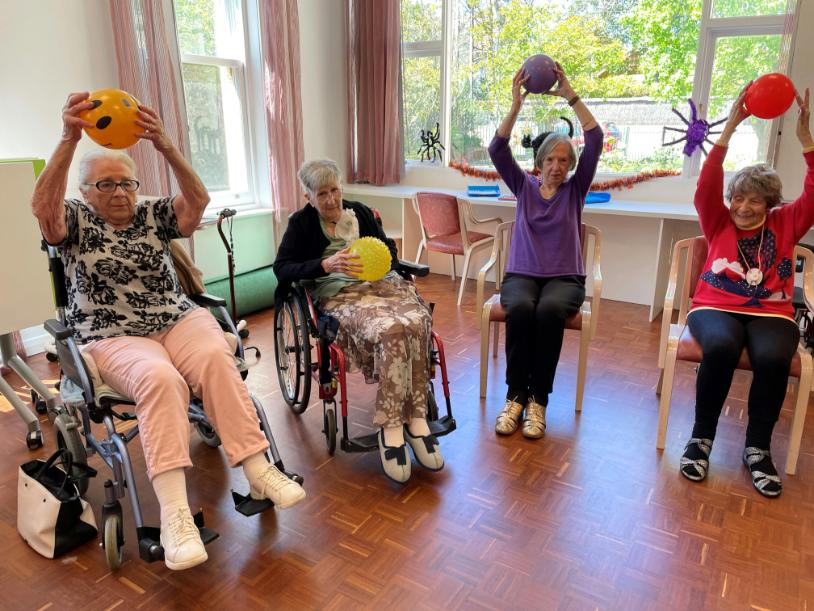
It's not about intense workouts; rather, it's about movement that fits each individual's capabilities. These sessions can encourage residents to move at their own pace in a fun, low-pressure setting, which is essential for maintaining independence and promoting a positive outlook on life.
Building a Supportive Social Network
Group activities provide opportunities for residents to form lasting friendships, creating a supportive environment that nurtures both social health and emotional wellbeing. When residents feel connected to others around them, they're more likely to feel secure, valued, and understood.
Whether it's a leisure activity like gardening, a visiting animals event, or an entertainment event with music and dancing, social activities create moments of shared joy. These events transform surface-level interactions into genuine, heartfelt relationships. They allow residents to truly engage with other residents, moving beyond simple pleasantries to build meaningful relationships that are vital to their overall wellbeing.
Encouraging Self Esteem and Life Satisfaction
Feeling a sense of achievement and contribution can dramatically boost an individuals self esteem and life satisfaction. When group activities are designed to be accessible activities tailored to varying abilities and interests, every resident can participate and shine in their own way.
Whether it's through storytelling sessions that honour personal stories, collaborative projects, or performances, these activities highlight each person's unique experiences and talents. This not only fosters inclusion but also elevates the emotional health benefits of active participation, allowing each resident to feel heard, respected, and fulfilled.
Exploring the Local Community
Engaging with the local community through day trips to local attractions or nature walks allows residents to enjoy fresh air, see new sights, and experience a change of scenery. These outings are a wonderful way to keep life exciting and dynamic. Being part of the broader community also gives residents a renewed sense of identity and belonging, helping them maintain connections with the world beyond the care home. It's these experiences that bring so much fun and meaning to residents lives while supporting their overall wellbeing.
Creating an Inclusive and Accessible Environment
One of the cornerstones of a successful activity programme is its ability to be inclusive. At Benarty View, our activities coordinator ensures that every event, club, and session is designed with accessibility in mind. This means residents of all abilities can take part in group activities, whether it's sitting in on a storytelling circle, enjoying music therapy, or participating in light gardening.
The result is an inclusive environment where no one feels left out. By ensuring that group activities are adaptable and welcoming, we can ensure residents remain engaged and stimulated, regardless of their physical or cognitive limitations.
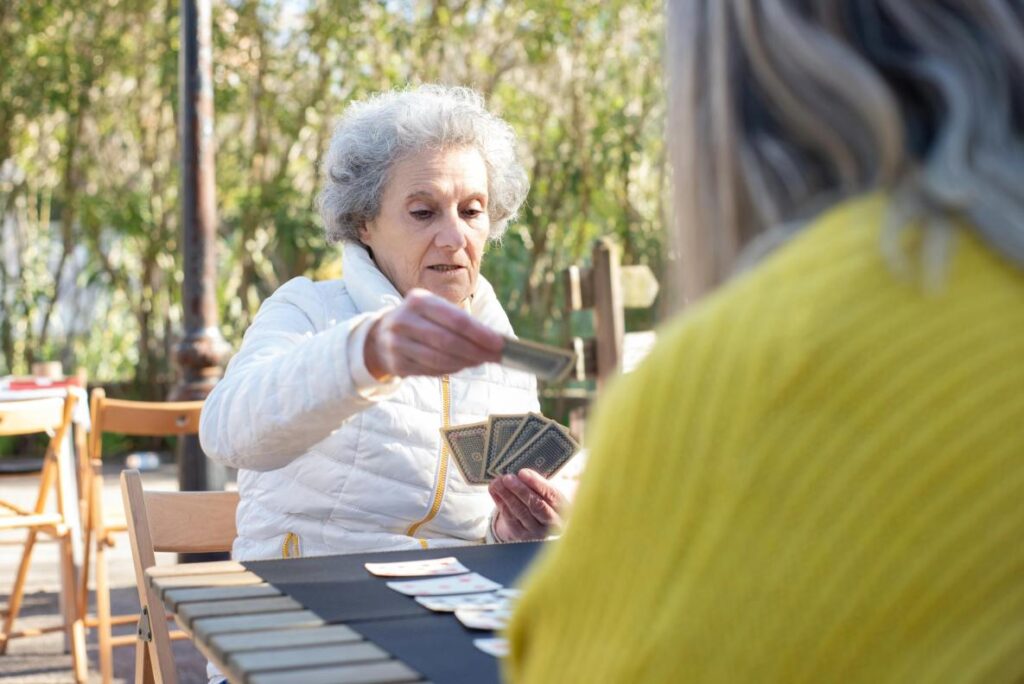
Promoting Relaxation and a Positive Outlook
It's not all about stimulation and movement - some group activities are designed specifically to promote relaxation and calm. From meditation circles to aromatherapy workshops and soft music sessions, these events help residents unwind, manage anxiety, and feel more at peace.
Relaxation focused activities are just as important for mental health benefits as they are for managing the stress and changes that often come with aging or transitioning into care. They help residents develop a positive outlook and improve their emotional wellbeing.
The Role of the Activities Coordinator
A skilled activities coordinator plays a vital role in creating a vibrant and engaging social life within the care home. They are responsible for planning a wide range of activities in care homes that cater to different interests and abilities. By getting to know residents personally, they can tailor group sessions to spark joy and foster meaningful participation.
Whether organising weekly exercise classes, planning outings to local attractions, or coordinating art workshops, the activities coordinator ensures that group activities consistently align with residents preferences and abilities, enhancing both mental and physical health benefits.
Leisure Activities that Make a Difference
A rich calendar of leisure activities has countless benefits for care home residents. Activities such as arts and crafts, storytelling, music sessions, gentle exercise, gardening, and cooking not only provide entertainment but also support mental stimulation, fine motor skills, and encourage new hobbies.
Even something as simple as a group puzzle-solving session can yield significant benefits: it stimulates cognitive functions, fosters teamwork, and provides a shared sense of accomplishment. Over time, these seemingly small moments build toward an enhanced sense of well being and joy in everyday life.
The Positive Impact of Group Activities
So, why are group activities good for residents in a care home? The evidence speaks for itself. Group activities improve mental health, boost physical health, enhance emotional well-being, and promote overall well-being. They create opportunities for residents to connect with fellow residents, maintain cognitive functions, and feel part of a supportive network.
At Benarty View Care Home, we believe that group activities are an essential part of care - because every resident deserves to lead a life filled with joy, connection, and purpose.
Whether it’s laughing during a game of bingo, reminiscing during a storytelling session, or finding new passions through arts and crafts, our activities programme helps residents find comfort, friendship, and so much fun in daily life.
Ready to Learn More?
If you’d like to learn more about the activities offered at Benarty View Care Home, get in touch with our friendly team today. We’re here to help you or your loved one live life to the fullest in a vibrant, caring community.

